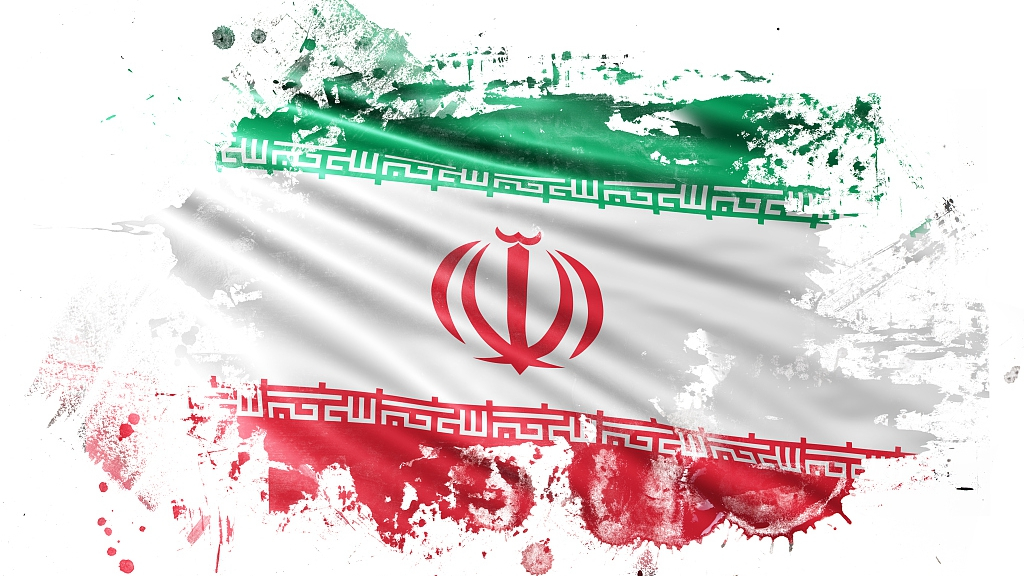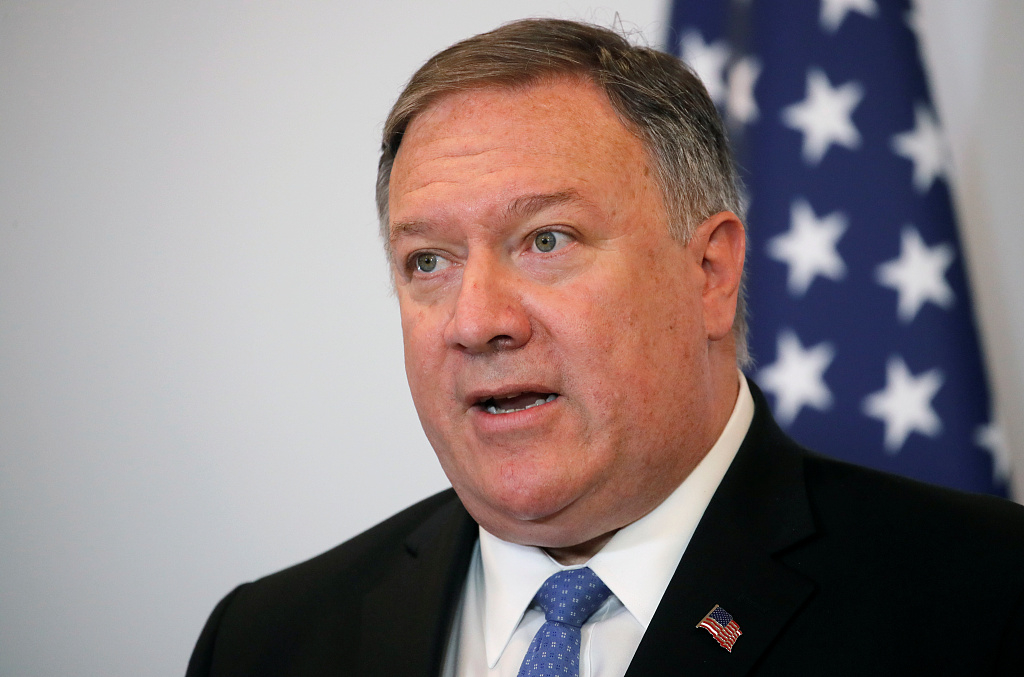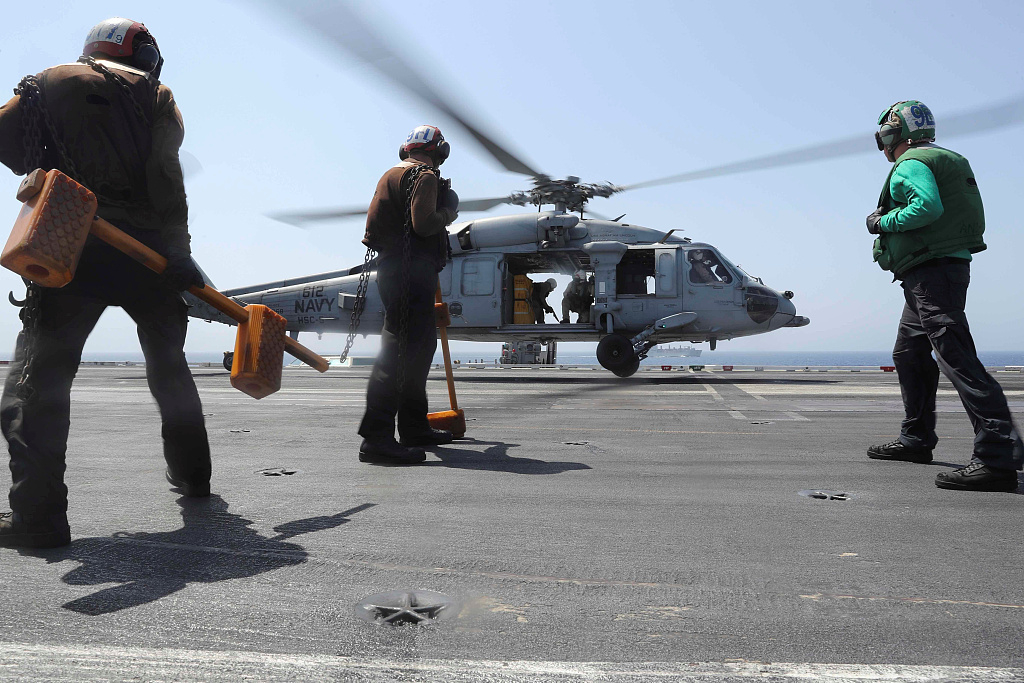
Opinion
12:55, 07-Jun-2019
What's the EU position on the U.S.-Iran confrontation and where will it lead?
Guy Burton

Editor's Note: Guy Burton is a visiting fellow at the Middle East Center at the London School of Economics, and adjunct professor at Vesalius College, Brussels. The article reflects the author's opinion, and not necessarily the views of CGTN.
In late April, the U.S. surprised many when it announced it would not be extending waivers to several of Iran's largest oil purchasers, including China and India. Any company from those countries that did so would be subject to U.S. sanctions.
Sanctions were the outcome of the U.S. decision to withdraw from the Iran nuclear deal, which was signed in 2015 between Iran and the five UN Security Council members plus Germany. In exchange for freezing its nuclear program, sanctions against Iran would be removed, allowing much-needed trade and investment.
The recent U.S. decision not to renew the waivers led to rising tensions. After fiery language from U.S. President Donald Trump and his national security adviser, John Bolton, several tankers were attacked off the coast of the UAE while a pipeline deep in Saudi Arabia was attacked by a drone.
To date, no one has claimed responsibility for the attacks on the tankers, although Bolton alleged that Iran was behind it. In response, Washington raised the bar, publicizing the deployment of an aircraft carrier and additional troops to the Gulf.
After weeks of confrontation, there was a shift. Last week, U.S. Secretary of State Mike Pompeo offered talks with Iran without any preconditions – which Tehran responded to by demanding that Washington return to the nuclear deal.

U.S. Secretary of State Mike Pompeo offered talks with Iran without preconditions in Bellinzona, Switzerland, June 2, 2019. /VCG Photo
U.S. Secretary of State Mike Pompeo offered talks with Iran without preconditions in Bellinzona, Switzerland, June 2, 2019. /VCG Photo
Pompeo's more moderate language was also apparent when he said that the U.S. would not block the Instrument in Support of Trade Exchange (INSTEX) from working. The INSTEX is a European initiative: It is a bartering mechanism through which European companies which trade in Iran can avoid using the international financial system and so avoid falling foul of U.S. sanctions.
If and when it is fully functioning, the INSTEX could provide a lifeline for Iran's economy. In 2018, trade between Iran and Europe fell, especially from the second half of the year. But despite that fall, the EU-28 still counted for 18 percent of Iran's trade last year, making it second only to China.
Overall, Iran's economy is in a precarious position. According to the IMF, Iran's GDP contracted by four percent in 2018 and is expected to decline by six percent this year. In addition, the currency devalued by 60 percent in 2018 and inflation is expected to reach 40 percent this year.
Meanwhile, much-needed European investment is drying up. One of the most notable was last November, when the French oil company, Total, pulled out of investment plans for the South Pars gas project when it became clear that it would not be eligible for a U.S. sanction waiver.
Given Iran's current economic situation, U.S. sanctions are having an effect. But they are damaging to society and may make it more resentful of the U.S. as a result. Perhaps, for this reason, Pompeo and the U.S. leadership decided not to oppose the INSTEX, so long as it only includes goods not covered by sanctions, including medical and humanitarian goods.
Pompeo's statement contrasted with previous U.S. comments. Earlier in May, the Treasury Department reported that the INSTEX was not completely in line with global standards to counter money laundering or terror financing and so could potentially face sanctions.
Part of the reason for the more forceful U.S. stance then was a growing realization that the Europeans – France, Britain, and Germany – were more serious about setting up the INSTEX than they had previously let on.
The European position has been consistent over the past year, however. The EU's commissioner for foreign affairs, Federica Mogherini, has said that Europe is committed to the Iran nuclear deal and has called for dialogue and engagement between the U.S. and Iran. This was evident when the EU pushed back against Iran's threat to restart parts of its mothballed nuclear program on May 6.

A helicopter lands on the flight deck of the Nimitz-class aircraft carrier USS Abraham Lincoln during a replenishment-at-sea, in the Arabian Sea, May 31, 2019. /VCG Photo
A helicopter lands on the flight deck of the Nimitz-class aircraft carrier USS Abraham Lincoln during a replenishment-at-sea, in the Arabian Sea, May 31, 2019. /VCG Photo
The Iranian statement was both an attempt to put pressure on the Europeans as well as a sign of frustration. Throughout 2017, Trump made clear he would withdraw from the Iran nuclear deal. Yet when he did so last May, European leaders failed to respond quickly: they only agreed to create the INSTEX at the end of January.
In addition, not only was it not yet operational in May, but it covers only a selected basket of goods; it does not include oil, Iran's most important export commodity.
In short, the European response to the Iran crisis to date has largely been both gradual and limited. This goes against Iran's preferences and economic needs, which are immediate and comprehensive.
Yet Iran is unlikely to see much change, certainly in the coming months. Mogherini is due to depart her post, which will mean jockeying among Europe's leaders over who will get the position.
Meanwhile, in two of the European signatories to the Iran nuclear deal – Germany and Britain, domestic politics looks likely to drown out international affairs: both are undergoing changes in leadership.
Nevertheless, if Iran can survive the present hurdles and the INSTEX is eventually able to get off the ground, its operation could have significant consequences. If the INSTEX can work effectively in relation to its current scope, that could make it more attractive to a greater number of companies and countries, including Russia and China.
Should that happen, then not only will it offer an alternative to the current situation facing Iran, it may also indicate a more visible and cohesive European presence on the world stage, which may also suggest changes in the nature and dynamics of the relationship between the U.S. and Europe as well.
(If you want to contribute and have specific expertise, please contact us at opinions@cgtn.com.)

SITEMAP
Copyright © 2018 CGTN. Beijing ICP prepared NO.16065310-3
Copyright © 2018 CGTN. Beijing ICP prepared NO.16065310-3